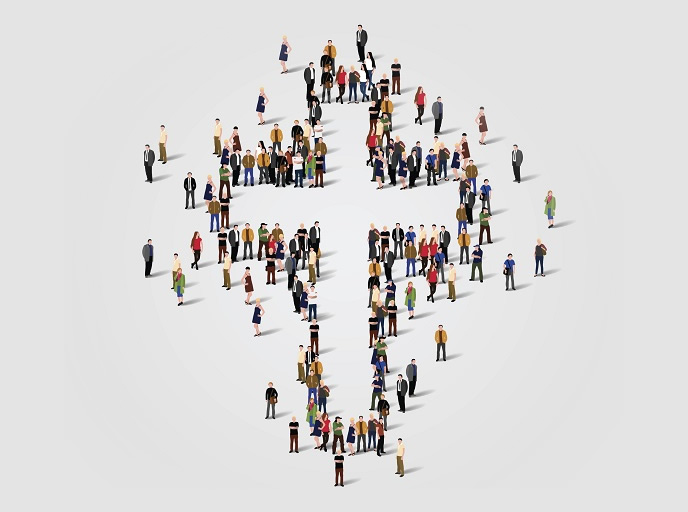Should God come to work?

Employ One and Get Three for ‘Free’
5 May 2021Because of God, some don’t work Sundays and others not Saturdays. Some workplaces have chaplains and most others shy away from any religious representation at work. Religion has recently become a significant political issue in Papua New Guinea and recognised or not, it is also a significant workplace issue. But how can an employer accommodate God at work? Should employees leave God and their religious identity at home? Should God be allowed once a week to allow employees to pursue Sunday-Christianity? Should God even be part of the conversations in the tearoom?
Religion is an increasingly important aspect of diversity management and although peer research says that there are approximately 4,300 religions around the world, the reality in Papua New Guinea – according to the 2011 Census – is that 98 percent of the population identify as Christians. Nearly all Papua New Guineans derive their religious identity – a core and fundamental characteristic – from the God of the Bible.
We only need a few examples to unearth the impact that religion (and more specifically Christianity) has had in the world. Consider that some of the largest charities like World Vision, Red Cross and the Salvation Army, are Christian organisations. The Catholic Church itself runs thousands upon thousands of hospitals, clinics, and homes for the elderly and those with special needs around the world. The World Bank in 2014 revitalised its engagement with religious organisations based on a recognition of the essential work these organisations do.
Zooming in to PNG, we see the same reflection. The country is fortunate to have many non-government organisations that are faith-based. HOPE Worldwide, for example, is one of those that has been on the frontline since Covid-19 was declared a pandemic, ensuring other clinical services and communities were, and continue to be, supported. The government has maintained a focus to partner with Christian health, education and community service providers to achieve national goals. As published by the Department of Community Development & Religion, this partnering is a strategic step to overcome impediments of ineffective processes of secular organisations and institutions. Just ten years ago Repentance Day was established as a public holiday committed to Christian prayer in a ‘Christian country.’ A country that treats the most significant days in Christian history – Good Friday and Christmas Day; when Christians publicly honour the death of their LORD Jesus and when he was born – on exception.
The inclination of business leaders may be to ignore, dismiss and sometimes discourage religion in the workplace. In fact, the HR community has traditionally been reluctant to champion the cause of religious expression. Although diversity has been a trendy tag that has been embraced by even the largest of corporations in the country, the focus has largely been on participation of women. But what is diversity management without the inclusion of its forgotten child?
Papua New Guinea’s constitution allows for the freedom of conscience, thought and religion; every person has the right to practice one’s religion and beliefs. Political arguments aside, these aspects of religion that are part of the workplace landscape need to be acknowledged and discussed including concerns around polygyny and traditional religious beliefs and customs which many citizens integrate into their Christian faith.
Although it is a fairly new area of investigation, studies not only reiterate that religion is a regulator of behaviour, commitment and conduct, but also translates to organisational performance. The value people place on their relationship with God and the way they treat others as a result, is actually associated with more innovation and higher revenues. In fact, just the freedom of religious expression facilitates solutions to other work-related problems.
Could this mean that organisations are missing out on a significant source of employee engagement and dedication particularly in an environment where nearly all citizens identify as Christian?
With the Government of PNG’s reassertion of religious national identity, diversity management not being about surface -level diversity, and the impact and influence it has in a Melanesian environment, religion is a public issue making a re-emergence in the workspace.
Remembering that there are grounds of discrimination if workplace decisions about people are made on criteria irrelevant to the reasonable performance of their job, here are a few key Dos and Don’ts:
Do:
- Ensure policies are written in a way that is instructive and useful to management. Establish, for example, a mechanism to review and consider requests for religious accommodation.
- Ensure that the workplace is a space where conversations are encouraged. Perhaps Proverbs 18:2 which says, “A fool finds no pleasure in understanding but delights in airing his own opinions,” would be an appropriate reference. Conversations and discussions are an opportunity to walk around in other peoples’ shoes and understand issues from the other side.
- Have good process. Even if employers cannot (and sometimes, should not) accommodate some or parts of religious requests, reasonable effort must be made. Good process is, after all, linked with good management.
- For the sake of consistency promote nondenominational “values” and ethics.
- Be wary of workplace proselytizing as it could lead to harassment.
- Respect the rights and dignity of others – it’s lawful!
Don’t:
- Ignore or reduce the importance of religion in the workplace. Much like racelessness (refer to our upcoming article: Dear Black Employee, please use your white voice), subjugating something that makes others different, devalues, demotivates and lessens an employee’s ability to be productive and satisfied in their work.
- Allow employees to condemn as “evil” or “damned” others who believe differently.
- Problematise religion. Religious illiteracy leads to blindness of the powerful cultural role that religion plays in this society.




